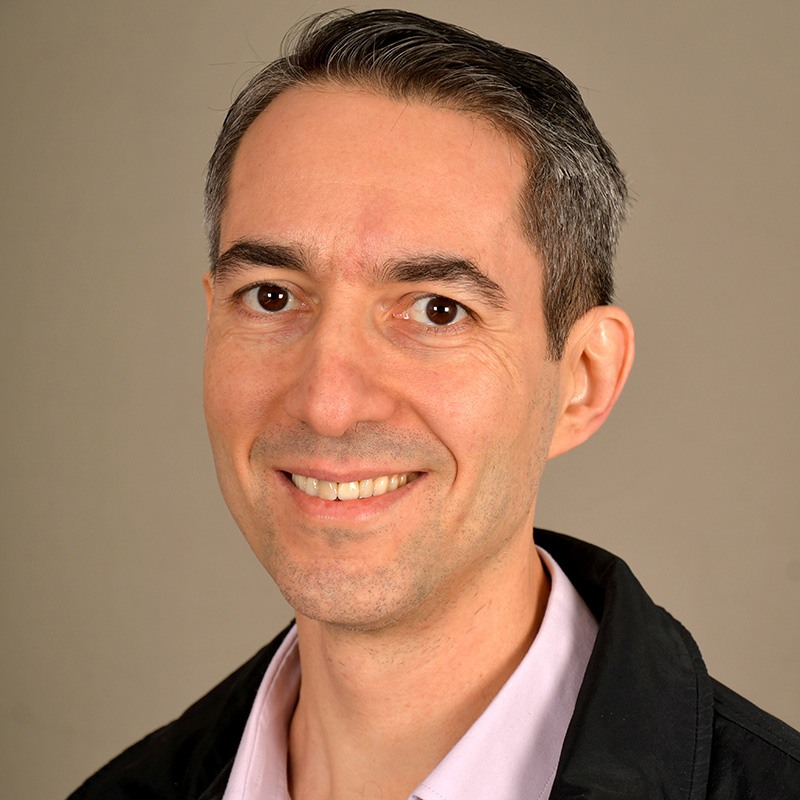New group leader in AI joins the Franklin
Dr Alexandre Paschoal has recently taken up his new post as a new group leader in the Artificial Intelligence and Informatics theme at the Rosalind Franklin Institute.
Alexandre seeks to leverage the potential of artificial intelligence and extensive pre-existing datasets, such as the UK Biobank, to unveil valuable biological insights that could pave the way for new therapeutics and diagnostics. He says, “Data is only useful once it has been sorted, arranged, and made actionable and accessible – through telling a story about that data. I want to use these large datasets to help scientists make better decisions about avenues to pursue.”
During Alexandre’s first month at the Franklin, he has met with other group leaders and potential collaborators at the Franklin to get to grips with the work already underway here and understand how he can be an asset to the Franklin. He has already identified lots of opportunities to work with the Structural Biology, Biological Mass Spectrometry and Next Generation Chemistry teams.

Alexandre earned his PhD in Bioinformatics from the University of São Paulo in 2012. Since this time, he has been an associate professor for 12 years at the Federal University of Technology – Parana (UTFPR), Brazil. During his time there he worked on a number of interdisciplinary projects, predominantly working on bioinformatics research problems. Now, at the Franklin, Alexandre brings a wealth of experience to a new frontier, eager to apply his skills to diverse and impactful scientific domains. In particular, he expects to enhance our understanding of biological systems through ambitious AI approaches and advanced data analysis methods. See his profile for more details.
When asked why he chose to join the Franklin, Alexandre had this to say, “The Franklin’s values and commitment to open science and excellence were pivotal reasons for me deciding to join the Institute – I was looking for a new adventure. I also wanted my work to have utility – to create new tools, databases and research that will be of use to society.”
Alexandre commended the AI & I team’s emphasis on making their programs open source, aligning with his belief that scientific knowledge be universally accessible.
Beyond his research ambitions, Alexandre harbours a strong desire to share his expertise. One way he plans to do this is by running training courses for those interested in learning more data science techniques. He also wants to inspire the next generation of computer scientists and is interested in aiding with the Franklin’s local schools outreach programs.
Alexandre will be a terrific asset to the Franklin as he wants to not only advance the frontiers of scientific understanding but also foster a community where knowledge is accessible, shared, and serves a greater purpose. We are delighted to have Alexandre join us at the Franklin and look forward to sharing more updates from him soon.
